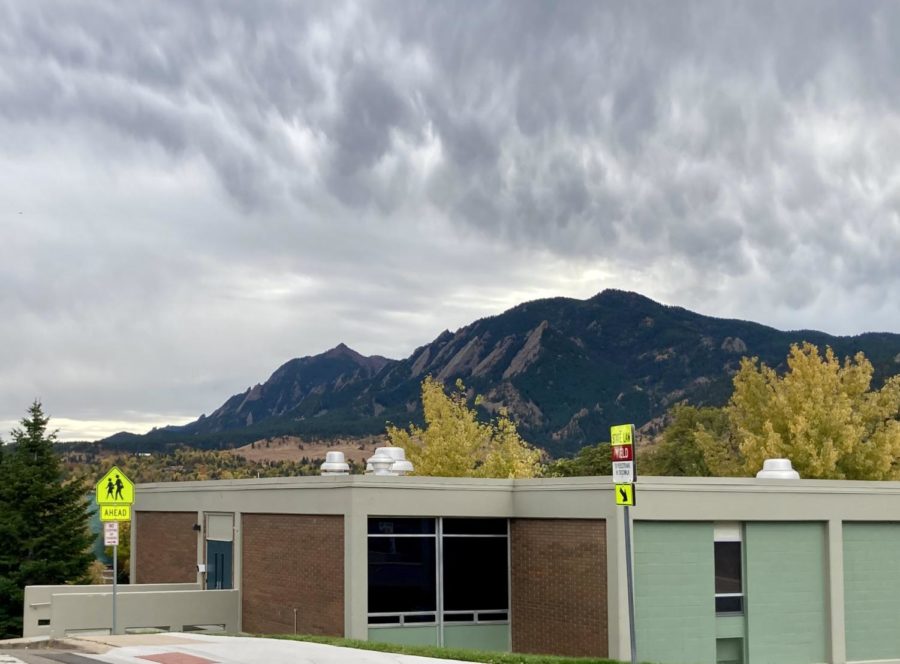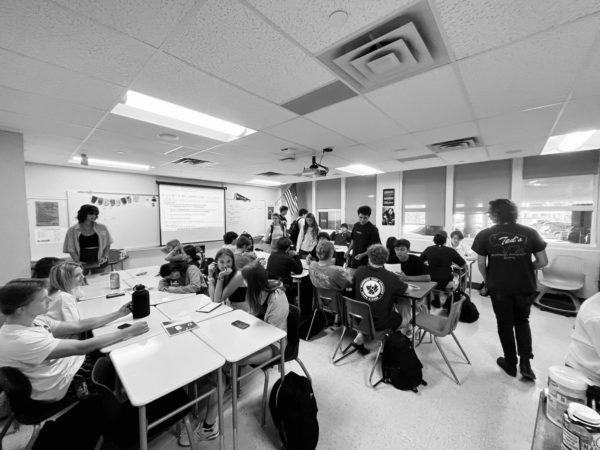Boulder County Stay-At-Home Order
Due to Boulder’s increased rate of fentanyl-related deaths, Colorado’s “Good Samaritan” laws, which let people have some immunity from substance laws when reporting on overdoses, have never been more relevant.
On Thursday, September 24, the city of Boulder issued a new Stay-At-Home Order targeted at students between the ages of 18-22, halting all gatherings, among other rules. The order states that students in the age limit cannot gather “anywhere in the city of Boulder may not participate in any gatherings of any size, whether indoors, outdoors, on or off-campus, or with individuals of any age.” The county also additionally issued specific Stay-At-Home Orders for 36 addresses in Boulder with multiple gatherings and violated current health codes. The order’s release was decided by the City of Boulder’s data analysts, executive director and the State Health Department and was written by the department’s attorney, who wrote it based on what they could do legally to help.
To give their opinions on the subject, several college students agreed to be interviewed. Vaibhav Chousaria (21) said, “As someone who’s an extrovert, yeah, it sucks, but we have to remember that it’s not about us. It’s about people who could legit die. So I am 100% fine with sacrificing my social life a bit so people can stay safe.” Several other students shared his opinion, while a few argued that the order was unfair for a few reasons. “I, personally, don’t think it’s fair,” Shao Hall said (18). “I think social interaction is critical to our mental health and being that we are already restricted with gatherings outside, in dorms and in classes, we have no sense of ‘normality.’ Yes, it will help the curve but limiting us to only interacting with family and our roommates is not enough.” Others have concerns about the punishment: a misdemeanor, possible 90 days jail time and a $1,000 fine. If you are a CU student, you may also be suspended from remote learning and banned from the campus. Avnish Asthana (20) said, “I think their punishment of suspending students, even from remote school is way too harsh. The misdemeanor, 90 days of jail time and $1000 fine might be justifiable if the student is at a party, but if it’s a small gathering, that’s completely unfair.”
Certain expectations may be unreasonable for some, such as the Essential Activities paragraph, which states, “Obtain necessary supplies by way of curbside pickup or contactless delivery,” and the Essential Visitors paragraph, which says, “Essential Visitor means any visitors providing licensed medical care. House directors, housekeeping, cooking service providers and CU Boulder dormitory employees for Subject Properties.” “I think it’s fine if they said something like ‘no more than five people,’ but not even one person? That’s not going to work,” said Avnish, “I got classes where I can’t work with partners over Zoom and I have to be with them in person. Also in CU Apartments, the wifi doesn’t completely work and I lose WiFi connection every five minutes. I have to go to friends’ places to take tests.” As for grocery issues, transportation remains the biggest issue.
To answer some FAQs, I spoke to Chana Goussetis, a former BHS student and a Public Information Officer who’s part of the Boulder County COVID-19 Response team. She explained that the primary goal of the order is to “eliminate contact between 18-22 year-olds and everyone else and each other so that we stop the transmission of COVID-19.” She also explained that the order “applies to anyone in the city of Boulder ages 18-22 and the reason for that is we did see some transmission in Non-CU students of the same age group.” This is because even if you are not a CU student, you may contact someone who is. In response to questions brought up by students about the Essential Activities and Visitors ruling, Goussetis said, “It’s not great and it’s not what anyone wants to follow but it’s temporary and we really need it to be followed for nine more days, to be able to get a handle on the transmission.” Goussetis also mentioned that the city “would want to take action on [the internet problems] students are facing,” and “it would probably be related to getting better internet access for those folks rather than choosing another place for them to go, but we’d have to work with the university on that I think.” For closing remarks, Goussetis encouraged all people to follow the little rules like wearing a mask, washing your hands, and not getting close to people, because “it really comes down to individual actions.” To try and keep teens socially active, Goussetis also offered some advice about social interactions, saying, “I know it’s really hard, I know that at this age you’re really social and you’re supposed to be social and so I know it’s really a difficult time. I would recommend folks just chose a couple of friends and have an agreement that you’re going to spend time with each other and you’re not going to do that with other people so that you get that social interaction that you need.” The City of Boulder is concerned about students’ mental health, among other things and encourages you to call/text a crisis line or speak to an adult you trust if you are feeling depressed or unlike yourself. If you are experiencing any of these things, please call 1-844-493-TALK or text TALK to 38255.

Saisree is a senior who enjoys interviewing and featuring people at any chance. Since the age of 10, when she wrote an article about Will Smith using a discussion that had never happened, she knew she eventually wanted to interview people. Apart from Newspaper, Saisree enjoys taking contesting courses that she prays she will do well in just for a challenge. She is particularly interested in biotechnology and how it will either benefit or end the human race. She is an artistic person, very much in tune with her culture, and does Indian classical dance, violin, and vocals. To power the force Saisree attempts to be, she relies solely on purple grapes because they are higher in antioxidants and protect...






